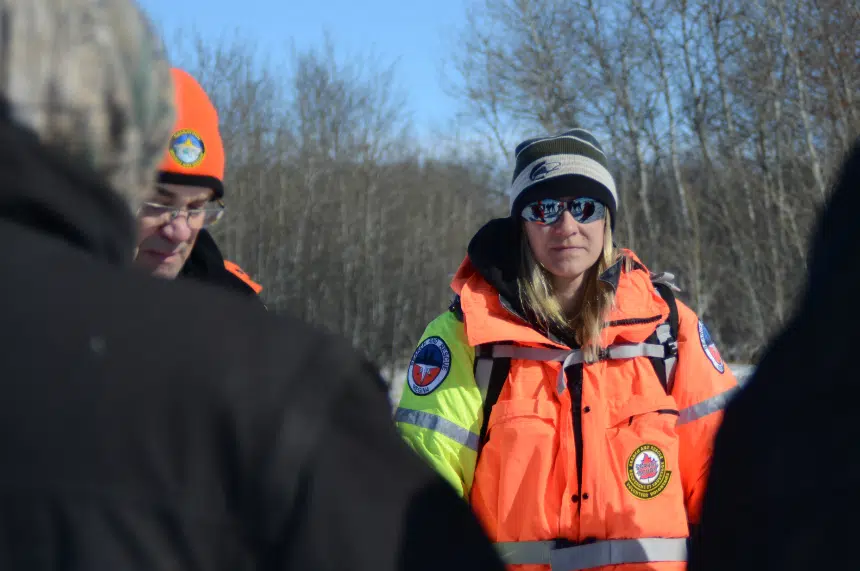Ian McNeil’s first mission as a search and rescue volunteer in La Loche 37 years ago was to find a missing friend he had met just one month earlier.
That friend had gone canoeing on a hunting trip and disappeared after the boat capsized. He was never heard from again.
“I realized the importance of search and rescue and I’ve stayed with it ever since,” McNeil said.
McNeil was in White City on Saturday for a training exercise that involved 18 search and rescue teams from across Saskatchewan. He was joined by his long-time colleague, Ken Roth.
During speeches before the exercise started, both men were among those who received awards for their long-term service.
Roth started volunteering on searches 41 years ago. A retired fire chief, he says rescuing people is in his blood.
Roth also said, in a small community like La Loche, a missing person takes a toll on everyone. When searches end well, and the missing person is returned to their loved ones alive, he said it’s “the best thing anybody can feel.”

The training exercise took place at the White Butte Trails. The teams had to simulate a search for a diabetic man who had gone missing. (Joseph Ho/980 CJME)
It’s not always a happy ending, though. Roth said when a missing person is found dead, searchers mourn with the families.
But even so, it’s an ending nonetheless and that closure allows families to move on, McNeil said.
Training took place at the White Butte Trails on Saturday afternoon. The scenario — a diabetic man had spent two nights camping in the area. There was the risk of over exerting himself due to the heavy snow, which would affect his blood-sugar levels. He was supposed to meet his wife in the morning but never did.
Other search participants included police, Emergency Management and Fire Safety of Saskatchewan, search dog organizations and Civil Air Search and Rescue Association.
Bobbi Buchanan, president of the Search and Rescue Saskatchewan Association of Volunteers, said the exercise was about getting volunteers working with multiple agencies. Volunteers in all roles — from management to team leaders and searchers had a chance to hone their skills.
Crystal Giesbrecht, who started volunteering in the fall, said a search starts with a call or text. Searchers already have their gear ready and from there, they meet the rest of the team. They travel together to the search area, where they get a briefing from their team leader or police. Each member has a designated job.
“There’s a sense of urgency, but it’s calm and it’s controlled and people are professional,” Giesbrecht said.
“Good training helps to maintain composure and that’s why an exercise like this is important because once you’ve been through the motions and you know the procedure and you know the steps, then when that happens in the real world when you get activated, you’re going to be better prepared to handle that.”







